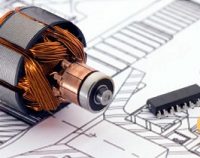Showing all 6 results
West Virginia-Civil Engineering Package #2: 30 PDH
$180.00Original price was: $180.00.$90.00Current price is: $90.00. Add to cartSix Civil Engineering courses plus West Virginia Codes, Rules & Ethics course that will earn 30 PDH guaranteed to be accepted by the West Virginia State Board of Registration for Engineers. Instructor: Raymond Bosek, PEWest Virginia – Codes, Rules, & Ethics for Professional Engineers: 3 PDH
In this course the student will study the West Virginia State Board of Registration for Engineers Codes and Rules, including Professional Engineering Ethics.
Accident and Operational Safety Analysis: 4 PDH
In this course the student will understand the fundamental concepts of accident dynamics, accident prevention, and accident analysis. The student will learn the theoretical bases of safety management and accident analysis, and the practical application of a Safety Management framework for an organization.
Engineering Human Performance Optimization in the Workplace: 4 PDH
In this course the student will understand the strategic approach for improving performance to reduce human error and manage controls so as to reduce unwanted events and/or mitigate their impact should they occur. The student will learn methods and techniques for catching and reducing errors and locating and eliminating latent organizational weaknesses.
Gravel Road Construction: 4 PDH
It is estimated that over a third of the 4.09 million miles of roadway in the United States are not paved. These are typically unpaved gravel or dirt roads, and they’re mostly located throughout rural areas and communities where the volume of traffic is so low that paving and maintaining a paved road is not economically feasible. In this course the student will understand basic concepts in designing and maintaining gravel surfaced roads and essential tips to ensure lasting performance.
Remote Sensing Essentials: 5 PDH
In this course the student will understand the theory and practice of remote sensing and image processing. Remote sensing is valuable tool for engineers and surveyors as it provides a cost-effective means of surveying, monitoring, and mapping objects at or near the surface of the Earth.
Residential Structural Design: 5 PDH
In this course the student will understand the basics of residential construction and design, residential structural design concepts and design loads for residential buildings and to gain an understanding of modern design methods and concepts for light-frame homes, apartments, and townhouses.
Sustainable Concrete Pavements: 5 PDH
In this course the student will understand concrete pavement sustainability concepts and recommended practices for maximizing the sustainability of concrete pavements.
Preview Course: West Virginia Codes, Rules & Ethics
Preview Course: Accident and Operational Safety Analysis
Preview Course: Engineering Human Performance Optimization in the Workplace
Preview Course: Gravel Road Construction
Preview Course: Remote Sensing Essentials
Preview Course: Residential Structural Design
Preview Course: Sustainable Concrete PavementsWest Virginia-Civil Engineering Package: 30 PDH
$180.00Original price was: $180.00.$90.00Current price is: $90.00. Add to cartSix Civil Engineering courses plus West Virginia Codes, Rules & Ethics course that will earn 30 PDH guaranteed to be accepted by the West Virginia State Board of Registration for Engineers. Instructor: Raymond Bosek, PEWest Virginia – Codes, Rules, & Ethics for Professional Engineers: 3 PDH
In this course the student will study the West Virginia State Board of Registration for Engineers Codes and Rules, including Professional Engineering Ethics.
Stress and Strain in Soils: 4 PDH
In this course the student will understand the properties and mechanics of soils and accurately calculate the stresses and deformations of soil masses.
Geotechnical Subsurface Exploration for Roadways: 5 PDH
In this course the student will understand the essentials of subsurface explorations for roadways with a comprehensive overview including site preparation, sampling methods, types of testing and methods, as well as standard guidelines and recommendations.
Engineering Description of Soils and Rocks: 4 PDH
In this course the student will understand the engineering characteristics of soils and rocks and to how to properly identify and classify to develop a subsurface profile for site evaluations.
Laboratory Testing for Geotechnical Design and Construction: 5 PDH
In this course the student will understand the intricate details of laboratory testing of subsurface soils and rocks in order to obtain values of their engineering properties necessary for design.
Slope Stability in Embankments and Structures: 5 PDH
In this course the student will understand the design of slope stability in embankments and structures and how to recognize, analyze, and solve slope instability issues encountered.
Approach Roadway Deformations: 4 PDH
In this course the student will understand roadway approach embankment design and construction and methods to mitigate deformations typically seen in these structure, including the infamous “bump” encountered at the approach to structure interface.
Preview Course: West Virginia Codes, Rules & Ethics
Preview Course: Stress and Strain in Soils
Preview Course: Geotechnical Subsurface Exploration for Roadways
Preview Course: Engineering Description of Soils and Rocks
Preview Course: Laboratory Testing for Geotechnical Design and Construction
Preview Course: Slope Stability in Embankments and Structures
Preview Course: Approach Roadway DeformationsWest Virginia-Electrical Engineering Package #2: 30 PDH
$180.00Original price was: $180.00.$90.00Current price is: $90.00. Add to cartSix Electrical Engineering courses plus West Virginia Codes, Rules & Ethics course that will earn 30 PDH guaranteed to be accepted by the West Virginia State Board of Registration for Engineers. Instructor: Juan Pesante, PEWest Virginia – Codes, Rules, & Ethics for Professional Engineers: 3 PDH
In this course the student will study the West Virginia State Board of Registration for Engineers Codes and Rules, including Professional Engineering Ethics.
2023 NEC Significant Code Changes Part 1: 4 PDH
Part 1 of a three part series, this four (4) hour course covers and highlights some of the significant changes and updates in the 2023 Edition of NFPA 70: National Electrical Code (NEC) which was recently updated from the 2020 Edition of NFPA 70: National Electrical Code (NEC).
2023 NEC Significant Code Changes Part 2: 4 PDH
Part 2 of a three part series, this four (4) hour course covers and highlights some of the significant changes and updates in the 2023 Edition of NFPA 70: National Electrical Code (NEC) which was recently updated from the 2020 Edition of NFPA 70: National Electrical Code (NEC).
2023 NEC Significant Code Changes Part 3: 4 PDH
Part 3 of a three part series, this four (4) hour course covers and highlights some of the significant changes and updates in the 2023 Edition of NFPA 70: National Electrical Code (NEC) which was recently updated from the 2020 Edition of NFPA 70: National Electrical Code (NEC).
Electrical Safety: 5 PDH
In this course the student will understand the dangers and hazards when working with or near electrical power and approaches to work safely to avoid serious injury.
Forecasting Solar Radiation and Photovoltaic Power: 5 PDH
Solar resource forecasting is critical for the operation and management of solar power plants and electric grids. In this course the student will understand the basic concepts and various methods of solar irradiance forecasting as well as forecasting the power production of Photovoltaic (PV) power plants.
Solar Energy Measuring and Modeling: 5 PDH
In this course the student will understand the concepts of measuring and modeling solar radiation, the various measurement systems available, satellite-based and operational models, and forecasting Solar Radiation and predicting Photovoltaic Power.
Preview Course: West Virginia Codes, Rules & Ethics
Preview Course: 2023 NEC Significant Code Changes Part 1
Preview Course: 2023 NEC Significant Code Changes Part 2
Preview Course: 2023 NEC Significant Code Changes Part 3
Preview Course: Electrical Safety
Preview Course: Forecasting Solar Radiation and Photovoltaic Power
Preview Course: Solar Energy Measuring and ModelingWest Virginia-Electrical Engineering Package: 30 PDH
$180.00Original price was: $180.00.$90.00Current price is: $90.00. Add to cartSix Electrical Engineering courses plus West Virginia Codes, Rules & Ethics course that will earn 30 PDH guaranteed to be accepted by the West Virginia State Board of Registration for Engineers. Instructor: Juan Pesante, PEWest Virginia – Codes, Rules, & Ethics for Professional Engineers: 3 PDH
In this course the student will study the West Virginia State Board of Registration for Engineers Codes and Rules, including Professional Engineering Ethics.
Design and Development of Hybrid Power Plants: 4 PDH
In this course the student will understand the hybrid power plant and the necessary design and planning details required to ensure reliable and efficient means for power production.
Compressed Air Energy Storage and Pumped Storage Hydropower Concepts: 4 PDH
In this course the student will understand understand current Compressed Air Energy Storage (CAES) and Pumped Storage Hydropower (PSH) technologies and explore future advances of this technology by examining the feasibility of a variety of different concepts.
Energy Storage Technology Cost and Performance: 4 PDH
In this course the student will understand a variety of different energy storage technologies and explore their advantages and disadvantages with an in-depth cost and performance comparison. This course follows the report: Energy Storage Technology and Cost Characterization Report, published by the U.S. Department of Energy (DOE).
Electrical Storage Guide for Electrical Engineers: 5 PDH
This course provides a thorough overview of current electrical storage technologies including batteries, flywheels, compressed air energy storage (CAES), and pumped storage hydropower (PSH) and is a how-to guide for engineers to aid in the selection, procurement, installation, and/or operation of stationary energy storage systems in today’s electric grid.
Electrification-Power System Evolution and Infrastructure Development: 5 PDH
In this course the student will understand Electrification, the shift from non-electric to electric sources of energy at the point of final consumption, and an analysis of the potential impacts of widespread electrification on the evolution of the U.S. electricity system. This course follows the guide: Electrification Futures Study: Scenarios of Power System Evolution and Infrastructure Development for the United States, published by the National Renewable Energy Laboratory.
Best Practices for O&M of Photovoltaic and Energy Storage Systems: 5 PDH
In this course the student will understand how to reduce the cost and improve the effectiveness of operations and maintenance (O&M) for photovoltaic (PV) systems and combined PV and energy storage systems. The course follows the guide: Best Practices for O&M of Photovoltaic and Energy Storage Systems 3rd edition, published by the National Renewable Energy Laboratory.
Preview Course: West Virginia Codes, Rules & Ethics
Preview Course: Design and Development of Hybrid Power Plants
Preview Course: CAES and PSH Concepts
Preview Course: Energy Storage Technology Cost and Performance
Preview Course: Electrical Storage Guide for Electrical Engineers
Preview Course: Electrification-Power System Evolution and Infrastructure Development
Preview Course: Best Practices for O&M of Photovoltaic and Energy Storage SystemsWest Virginia-Mechanical Engineering Package #2: 30 PDH
$180.00Original price was: $180.00.$90.00Current price is: $90.00. Add to cartSix Mechanical Engineering courses plus West Virginia Codes, Rules & Ethics course that will earn 30 PDH guaranteed to be accepted by the West Virginia State Board of Registration for Engineers. Instructor: Seth Grablow, PEWest Virginia – Codes, Rules, & Ethics for Professional Engineers: 3 PDH
In this course the student will study the West Virginia State Board of Registration for Engineers Codes and Rules, including Professional Engineering Ethics.
Accident and Operational Safety Analysis: 4 PDH
In this course the student will understand the fundamental concepts of accident dynamics, accident prevention, and accident analysis. The student will learn the theoretical bases of safety management and accident analysis, and the practical application of a Safety Management framework for an organization.
Boiler Basics-Operation and Maintenance: 5 PDH
In this course the student will understand steam generation, boilers and boiler components, and basic concepts in their operation and maintenance.
Engineering Human Performance Optimization in the Workplace: 4 PDH
In this course the student will understand the strategic approach for improving performance to reduce human error and manage controls so as to reduce unwanted events and/or mitigate their impact should they occur. The student will learn methods and techniques for catching and reducing errors and locating and eliminating latent organizational weaknesses.
Improving Motor and Drive System Performance: 5 PDH
This course provides a thorough overview of motor and drive systems and their components and presents various methods and opportunities to enhance performance and increase efficiency.
Installation, Maintenance, and Repair of Water and Sewage Systems: 5 PDH
In this course the student will understand a facility’s water and sewage systems and associated common components as well as basic concepts in installing, maintaining, repairing and the operation and maintenance of these systems.
Principles of Hydraulic and Pneumatic Systems: 4 PDH
In this course the student will understand the basics of hydraulics and pneumatics systems, hydraulics and pneumatics system components, and the operation and maintenance of these systems.
Preview Course: West Virginia Codes, Rules & Ethics
Preview Course: Accident and Operational Safety Analysis
Preview Course: Boiler Basics-Operation and Maintenance
Preview Course: Engineering Human Performance Optimization in the Workplace
Preview Course: Improving Motor and Drive System Performance
Preview Course: Installation, Maintenance, and Repair of Water and Sewage Systems
Preview Course: Principles of Hydraulic and Pneumatic SystemsWest Virginia-Mechanical Engineering Package: 30 PDH
$180.00Original price was: $180.00.$90.00Current price is: $90.00. Add to cartSix Mechanical Engineering courses plus West Virginia Codes, Rules & Ethics course that will earn 30 PDH guaranteed to be accepted by the West Virginia State Board of Registration for Engineers. Instructor: Seth Grablow, PEWest Virginia – Codes, Rules, & Ethics for Professional Engineers: 3 PDH
In this course the student will study the West Virginia State Board of Registration for Engineers Codes and Rules, including Professional Engineering Ethics.
Systems Engineering Fundamentals Part 1: 5 PDH
Part one of a two-part course, this course provides a thorough overview of the systems engineering process and presents a in-depth review of the tools and processes to to develop a system efficiently and effectively and to support that system through its life cycle.
Systems Engineering Fundamentals Part 2: 5 PDH
Part two of a two-part course, this course provides a thorough overview of the systems engineering process and presents a in-depth review of the tools and processes to to develop a system efficiently and effectively and to support that system through its life cycle.
Improving Pumping System Performance: 4 PDH
This course provides a thorough overview of pumping systems and their components and practical guidelines to enhance performance and increase efficiency.
Improving Process Heating System Performance: 4 PDH
This course provides a thorough overview of process heating systems and their components and practical guidelines to enhance performance and increase efficiency.
Improving Steam System Performance: 5 PDH
This course provides a thorough overview of steam systems and their components and practical guidelines to enhance performance and increase efficiency.
Improving Compressed Air System Performance: 4 PDH
This course provides a thorough overview of compressed air systems and their components and presents various methods and opportunities to enhance performance and increase efficiency.
Preview Course: West Virginia Codes, Rules & Ethics
Preview Course: Systems Engineering Fundamentals Part 1
Preview Course: Systems Engineering Fundamentals Part 2
Preview Course: Improving Pumping System Performance
Preview Course: Improving Process Heating System Performance
Preview Course: Improving Steam System Performance
Preview Course: Improving Compressed Air System Performance



